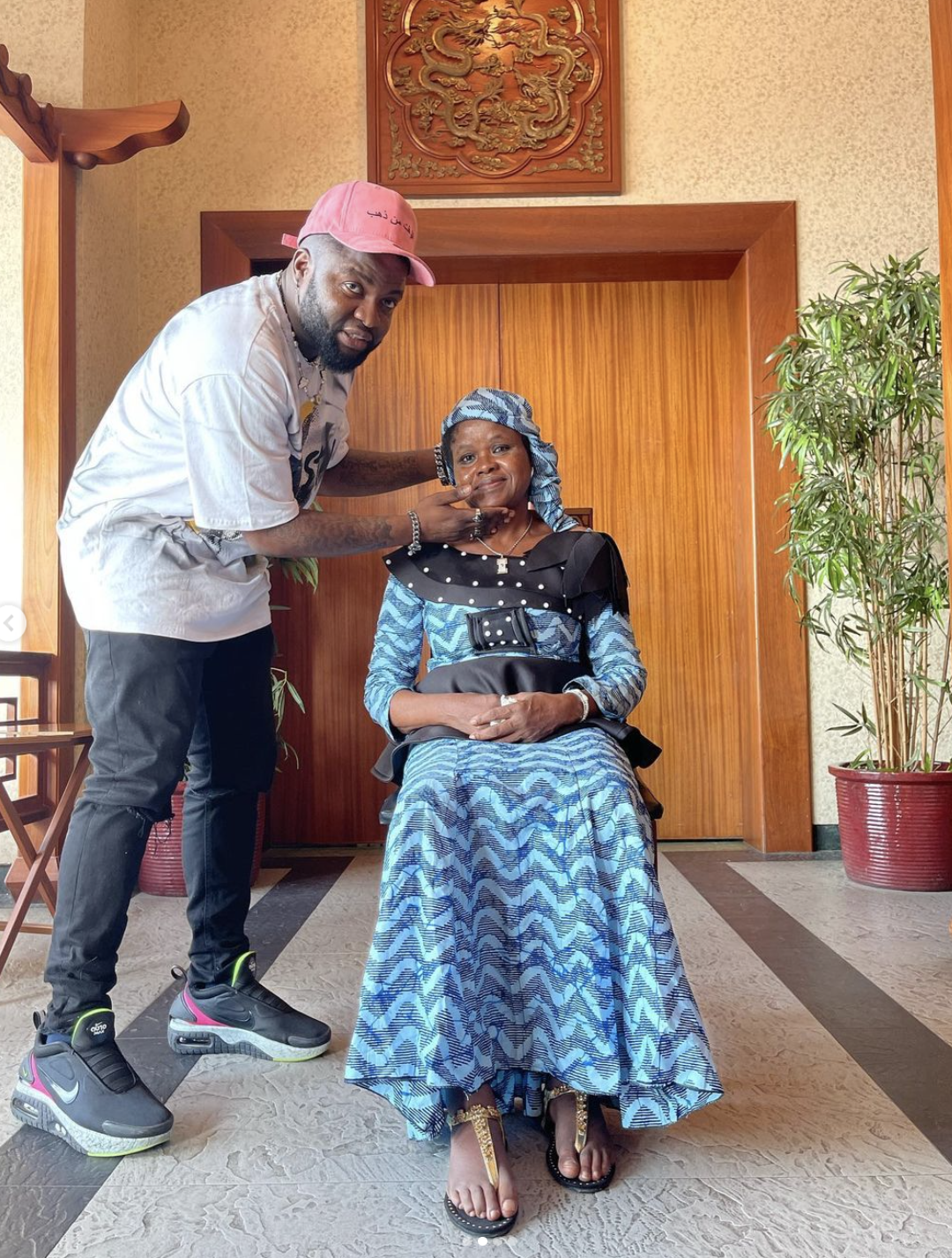Nigerian singer Skales has opened up about his ongoing struggle with grief following the loss of his mother in October 2022. The “Shake Body” hitmaker shared his emotional journey in a candid post on X, expressing a heartfelt wish to bring his mother back to life.
The artist’s raw admission of loss has resonated deeply with fans and fellow artists alike, particularly as he revealed the profound impact of being the last surviving member of his family lineage. In a revealing conversation with VJ Adams, Skales delved deeper into the personal implications of his mother’s passing, sharing how this loss has shaped his perspective on family and legacy.
During the interview, Skales spoke about the weight of responsibility he now carries as the sole bearer of his family’s bloodline. His statement, “My entire bloodline depends on me to have children and carry on the legacy,” underscores the profound sense of duty he feels towards preserving his family’s heritage.
The singer’s public expression of grief offers a rare glimpse into the personal struggles of public figures who often maintain composed facades despite dealing with deep personal losses. His willingness to share such intimate feelings has sparked conversations about grief, family legacy, and the pressures of carrying on family traditions in contemporary African society.
Skales’s revelation about being the last of his lineage adds another layer of complexity to his grief, highlighting how personal loss can intersect with broader questions of family continuity and heritage. His expressed regret about not starting a family sooner reflects a common experience among many who face similar situations, where loss becomes a catalyst for reflecting on life choices and future responsibilities.
The timing of these revelations, coming more than two years after his mother’s passing, demonstrates how grief can continue to evolve and shape one’s perspective long after the initial loss. His openness about these feelings has created a space for public discourse about dealing with loss and the responsibilities that can come with being the last of one’s family line.
The artist’s vulnerability in sharing these thoughts has garnered support from fans and fellow artists who relate to the universal experience of losing a parent. His story has particularly resonated with those who understand the cultural significance of family lineage in African societies and the pressure to ensure its continuation.
Skales’s public processing of his grief while simultaneously acknowledging his responsibility to continue his family line offers a compelling narrative about balancing personal emotional healing with societal expectations. His situation highlights the complex interplay between individual grief and collective family legacy that many face in similar circumstances.
The singer’s candid sharing of his experience has also opened up important conversations about mental health and emotional well-being in the entertainment industry, where public figures often feel pressured to maintain a strong exterior despite personal struggles. His willingness to express vulnerability challenges traditional notions of masculinity and strength in the face of loss.
As Skales continues to navigate this challenging period, his story serves as a reminder of the enduring impact of parental loss and the additional pressures that can come with being the last of one’s family line. His experience resonates with many who find themselves at similar crossroads, bearing both the weight of grief and the responsibility of carrying forward their family’s legacy.




